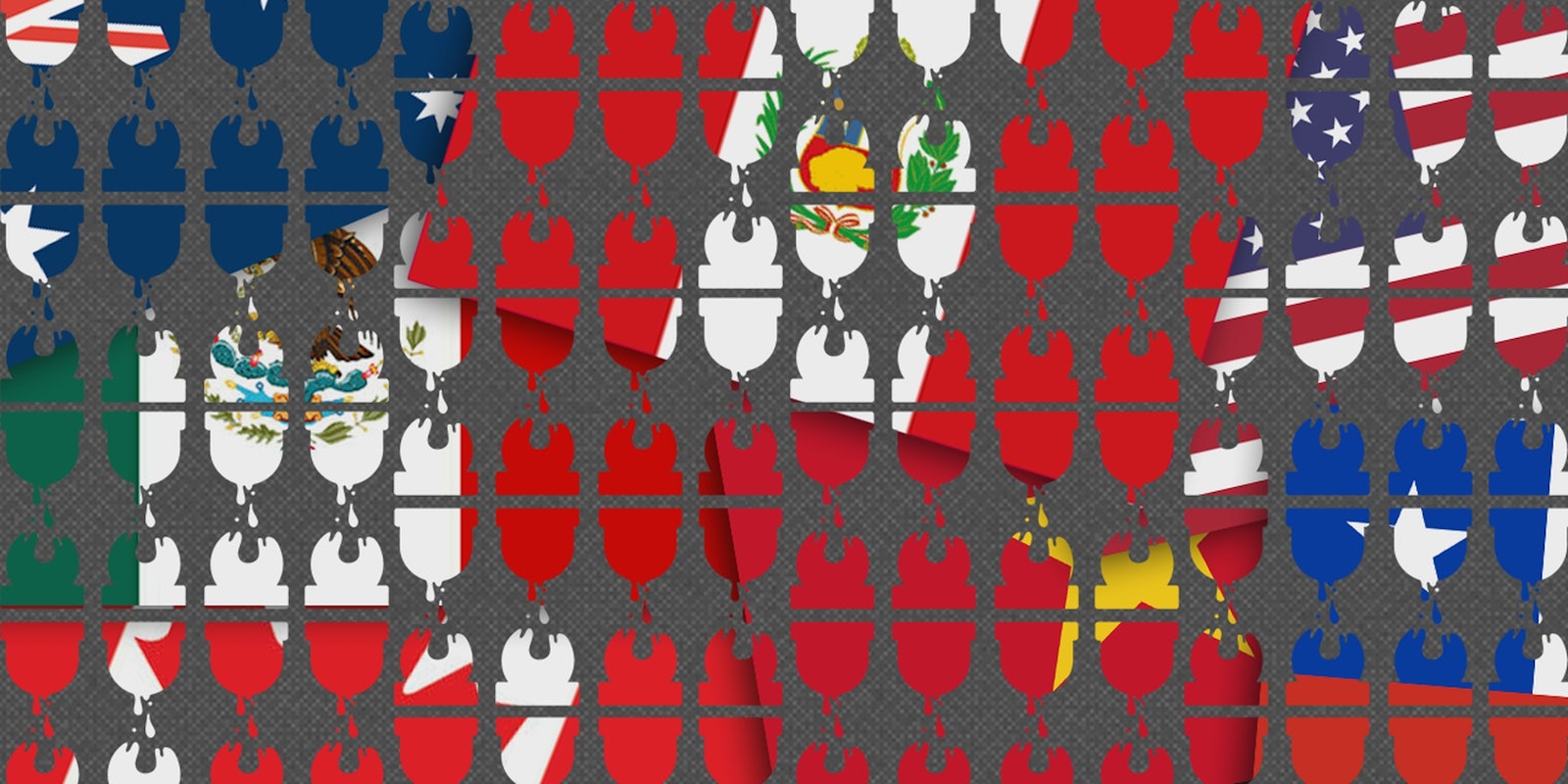The Trans-Pacific Partnership, a highly-criticized trade agreement currently being negotiated by a dozen countries along the Pacific Rim, has been defined by secrecy since talks began in 2011.
But finally, you can now see member countries’ negotiating positions in full.
The chapter on intellectual property, considered by many activists a grave threat to Internet freedom, had previously been leaked in two separate drafts, in 2011 and again in November 2013. But the TPP is a much bigger document, with thirteen other chapters, like how the countries will agree on labor issues and environmental regulations.
These positions, listed in a five-page grid, were independently obtained and released Sunday evening by both WikiLeaks and the Huffington Post, leading some to speculate that it was a deliberate, desperate attempt to show the world how negotiations were shaping up as those countries’ trade ministers meet in Singapore.
They certainly show that the U.S. disagrees with other TPP countries on a number of issues. It’s the sole country to refuse to eliminate subsidies for economic exports, for example. It also stands alone in its opinion on a few issues that aren’t fully clear from the document, on subjects are varied as agreeing on a “central reserve bank” in the investment chapter, technical consultations on the “sanitary and phytosanitary” chapter, and how to settle disputes when a country violates the environmental chapter.
Notably, it’s also the only country to reserve judgement, rather than agree, to “privacy obligations” in the e-commerce chapter.
This round of talks is scheduled to conclude Tuesday. Member countries, especially the U.S., have long expressed a desire for talks to conclude by the end of 2013, but it’s unclear if that’s still realistic.
Illustration by Fernando Alfonso III


